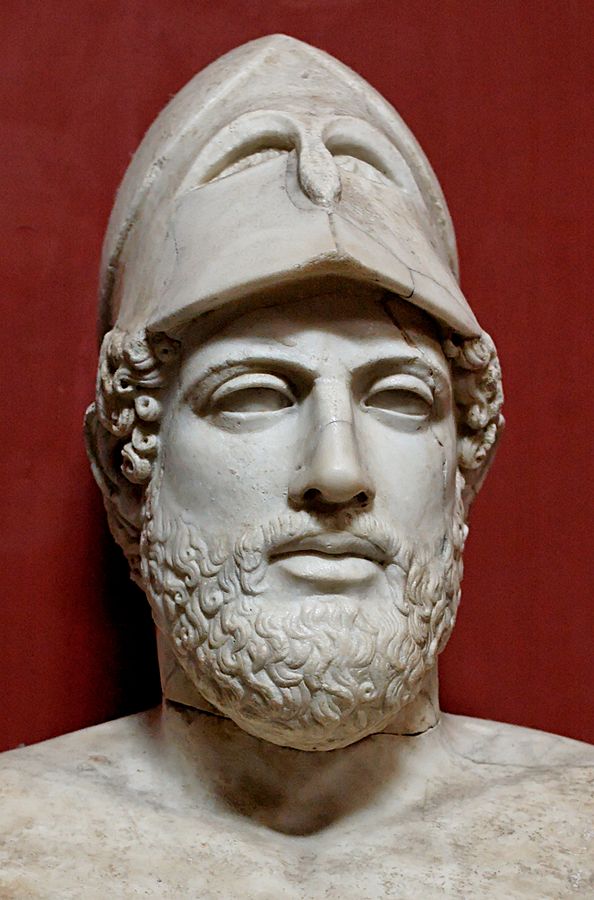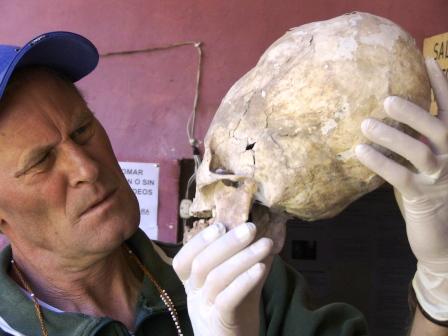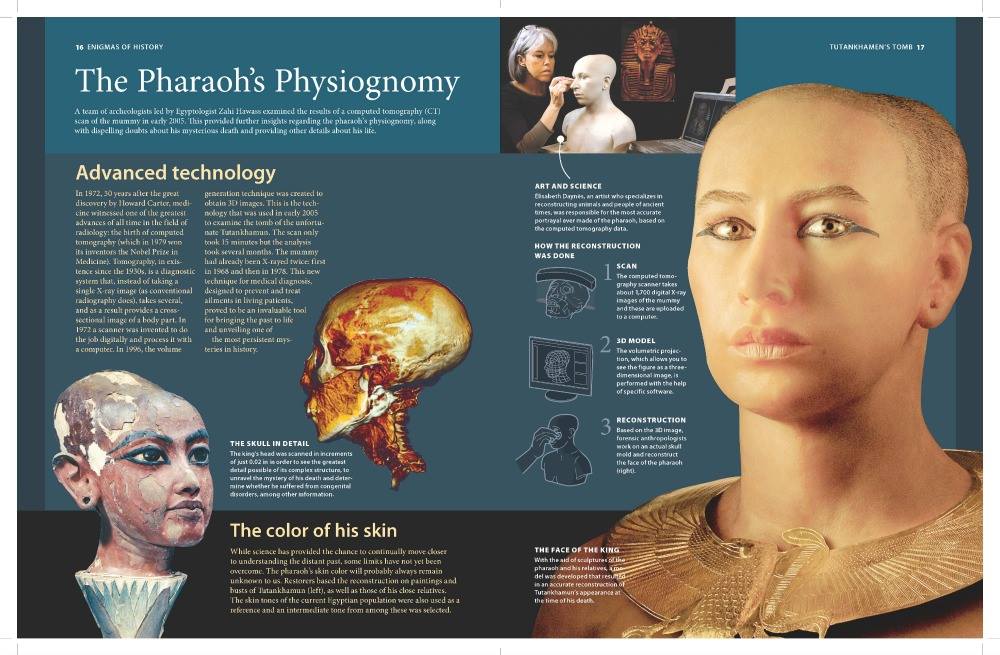The Greek statesman and and general of Athens during the Golden Age, Pericles was said to have an abnormally large head that can be called an elongated skull. He was descended, through his mother, from the powerful and historically influential Alcmaeonid family.
can be called an elongated skull. He was descended, through his mother, from the powerful and historically influential Alcmaeonid family.
The great Greek historian, Plutarch had said this about Pericles;
“His person in other respects was well turned, but his head was disproportionably long. For this reason almost all his statues have the head covered with a helmet, the statuaries choosing, I suppose, to hide that defect.
But the Athenian poets called him Schinocephalus or onionhead,for the word schinos is sometimes used instead of scilla, a sea-onion. Cratinus, the comic writer, in his play called Chirones, has this passage:
Faction received old Time to her embraces:
Hence came a tyrant-spawn, on earth called Pericles,
In heaven the hcad-compeller.
And again in his Nemesis he thus addresses him,
Come, blessed Jove, the high and mighty Head,
The friend of hospitality.
And Teleclides says,
Now, in a maze of thought he ruminates
On strange expedients, while his Head, depress’d
With its own weight, sinks on his knees: and now
From the vast caverns of his brain burst forth
Storms and fierce thunders.
And Eupolis, in his Demi, asking news of all the great orators, whom he represented as ascending from the shades below, when Pericles comes up last, cries out,
Head of the tribes that haunt those spacious realms, Does he ascend?”
LINKS:
Plutarch’s Lives of Romulus, Lycurgus, Solon, Pericles, Cato, Pompey By Plutarch
Six of Plutarch’s Greek Lives by Plutarch
http://penelope.uchicago.edu/~grout/encyclopaedia_romana/greece/hetairai/pericles.html

Moe is the founder of GnosticWarrior.com. He is a father, husband, author, martial arts black belt, and an expert in Gnosticism, the occult, and esotericism.








